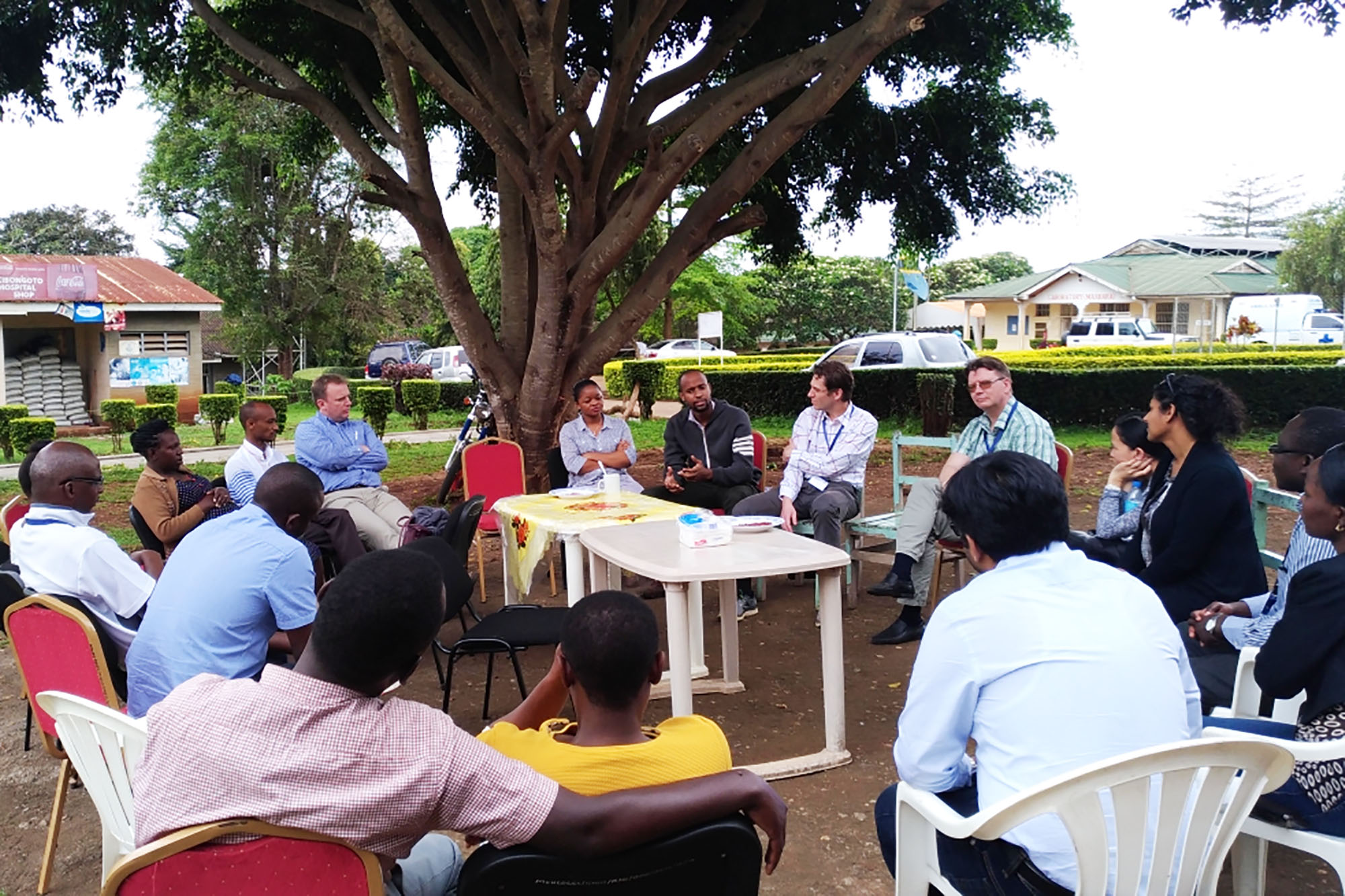Doctors at the University of Virginia School of Medicine are launching an ambitious effort in sub-Saharan Africa to target the dual scourges of sepsis and tuberculosis, a combination that kills up to half the people who contract it.
UVA Health Drs. Scott Heysell, Christopher Moore and Tania Thomas are seeking to reduce the number of deaths among people living with HIV who develop sepsis, a potentially deadly overreaction to infection by the immune system. Currently, 16 million people in sub-Saharan Africa develop sepsis every year. The spread of COVID-19 likely will only worsen the problem – doctors fear the added burden of COVID-19 on health care resources could turn back decades of progress against both tuberculosis and HIV.
The UVA researchers hope to save lives by initiating tuberculosis treatment sooner and tailoring patients’ medication dosage. They will test their approach in a new clinical trial.

“As far as we are aware, this will be the first clinical trial of antimicrobial treatment for sepsis ever conducted in sub-Saharan Africa and will hopefully inform us on the optimal timing, content and dosing of antimicrobial therapy for sepsis in high-HIV and tuberculosis-endemic settings,” said Moore, of UVA’s Division of Infectious Diseases and International Health.
The trial has been developed “in direct collaboration with our partners in Tanzania and Uganda, even [going] so far as convening community advisory boards of local stakeholders,” noted Heysell, who is also part of the Division of Infectious Diseases. “We think this is a bit unique and exemplary of how we can conduct research in countries with differing resources toward their most important aims.”
Sepsis and Tuberculosis in Africa
The team from UVA and their partners, Dr. Conrad Muzoora in Uganda and Dr. Stellah Mpagama in Tanzania, have found that tuberculosis is the leading cause of sepsis in sub-Saharan Africa. It is deadly in no small part because testing is limited and often inaccurate. That means many cases of tuberculosis sepsis are missed and left untreated until it is too late.
Heysell and Moore’s previous research has found that providing tuberculosis treatment earlier – even before patients have a confirmed tuberculosis diagnosis – may improve outcomes and help prevent sepsis-related deaths. They’ve also found that many patients are receiving tuberculosis treatment in doses too small to provide maximum benefit.
The doctors believe that adjusting the dosing and timing of tuberculosis treatment could significantly reduce the number of deaths caused by tuberculosis sepsis. To test this, the team’s randomized clinical trial in Tanzania and Uganda will compare their approach against the current standard of practice, which is to wait to give tuberculosis medication until after a diagnosis has been made.
About the Sepsis Trial
Heysell, Moore and Thomas have a combined experience of more than 30 years working in the region, most recently supported by a National Institutes of Health program called International Collaborations in Infectious Diseases Research. That program allowed them to perform important scientific research while building relationships and infrastructure in Tanzania, Uganda, Bangladesh and Siberia, which was critical groundwork for this new trial, Heysell noted.
The trial has been endorsed by important Tanzanian and Ugandan stakeholders and has received $3.5 million in support from the National Institutes of Health, which was made possible by an initial project planning grant from the UVA Global Infectious Disease Institute.
“We at the Global Infectious Diseases Institute are delighted that Drs. Moore, Heysell and Thomas, with their partners in Tanzania and Uganda, have secured NIH support to launch this trial,” said Alison Criss, director of UVA’s Global Infectious Disease Institute and an additional sponsor of the trial’s development. “By testing how early intervention affects tuberculosis sepsis in HIV-positive individuals, their findings have the potential to overhaul clinical practice and save many lives.”
To keep up with the latest medical research news from UVA, subscribe to the Making of Medicine blog.
Media Contact
Article Information
December 4, 2020
/content/uva-aims-improve-sepsis-treatment-save-lives-africa

